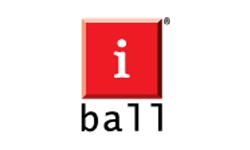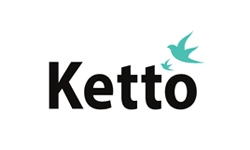Cloud Native Application Development Services
Modernise applications and new product development to reap maximum benefits from cloud technology

Building a Cloud Native Application is easier said than done, these applications are built to handle an infinite scale, lower operational cost, increase faster deployments using cutting edge technologies which further increases speed to market. Our Cloud Native Application Development Services aim at speeding the development process enabling even quicker deployments.
Cloud native apps are developed and deployed rapidly by dedicated teams which provide enterprises with greater agility, resilience, portability across cloud environments, serverless applications for ease of maintenance & scale, and containerisation for better portability.
Our team of certified cloud developers help enterprises transform digitally with cloud technologies.
Benefits of on-boarding Flentas as your Cloud Native Application Development Partner
Simpify operations by leveraging modern cloud-native development techniques.
This is the stage wherein our team of developers will simply brainstorm and put together a plan for the upcoming project alongside timelines. This enables everyone working on the project to identify the problem and scope of work.
Within this stage, we ensure a detailed analysis of the current system as well as identify new ideas for prototypes. Within this stage, we also create a software requirement specification document to ensure that everyone is on the same page.
During this stage our developers will create an outline of the overall application and will cover aspects like user interface, system interface, databases and network requirements. This design document will then be referenced throughout the entire process.
This is where the developers actually start coding and building the application according to there reference documents covered in the earlier steps.
Building the application is not enough. More emphasis has to be given to the testing stage wherein developers will make a note of any bugs that they come across such that the user experience is not affected in the long run.
This is where the overall design will come together and will be integrated into the environment making it ready for the market.
Once the application is out in the market, our team moves into the maintenance stage where they continue to test, identify and rectify issues reported by end users.


















We create success stories that are born in the cloud
Flentas is a cloud consulting company, focused on digital transformation. We help companies across various industries innovate with cloud technology by implementing a cloud experience for all your workloads. Leverage our cloud solutions for extraordinary performance, robust security, and scalability.


Cloud-native development refers to building and deploying applications that are specifically designed to leverage the capabilities of cloud computing platforms. It involves using cloud services, containers, microservices architecture, and DevOps practices to create scalable, resilient, and highly available applications.

Cloud-native development offers numerous benefits, including increased agility, scalability, reliability, and cost-efficiency. By adopting cloud-native practices, you can accelerate development cycles, improve resource utilization, and better meet the demands of modern, digitally driven businesses.

At Flentas, we provide a comprehensive range of cloud-native development services, including but not limited to cloud-native application design and architecture, containerization using Docker and Kubernetes, microservices development and orchestration, cloud-native application migration and modernization, continuous integration and continuous delivery (CI/CD) pipelines setup, monitoring, logging, and performance optimization, and cloud-native security implementation.

Security is a top priority in cloud-native development. We employ industry best practices and adhere to security standards to safeguard your applications and data. Our approach includes implementing identity and access management, encryption, network security, and regular security audits to mitigate risks and ensure compliance.

Yes, we specialize in migrating legacy applications to cloud-native architectures. Our team assesses your existing applications, devises a migration strategy, and executes the migration process efficiently, minimizing downtime and ensuring a smooth transition to the cloud-native environment.

Scalability is inherent in cloud-native architectures. We design applications to be horizontally scalable, allowing them to handle varying workloads seamlessly. By leveraging cloud resources and container orchestration platforms like Kubernetes, we ensure that your applications can scale up or down based on demand without compromising performance or reliability.

Cloud-native development offers advantages across various industries, including finance, healthcare, e-commerce, entertainment, and manufacturing. Any organization seeking agility, scalability, and cost-efficiency in their software development processes can benefit from adopting cloud-native practices.

Testing is integral to our cloud-native development process. We adopt a comprehensive testing strategy that includes unit testing, integration testing, and end-to-end testing of individual components and the entire application stack. We also implement automated testing frameworks and continuous testing practices to ensure the reliability and quality of your cloud-native applications.

We offer ongoing support and maintenance services to ensure the smooth operation of your cloud-native applications post-deployment. Our support team monitors the performance, availability, and security of your applications, addresses any issues promptly, and provides regular updates and optimizations to enhance their efficiency and reliability.

To get started with our cloud-native development services, simply reach out to us through our website or contact our sales team. We'll schedule a consultation to discuss your requirements, assess your project needs, and provide you with a tailored solution to accelerate your journey towards cloud-native excellence.


